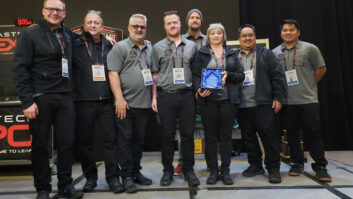Recent studies have shown that diverse companies tend to be more innovative and profitable than their more homogenous counterparts. How can businesses work to establish a culture that not only attracts diversity, but enables its employees with different backgrounds to flourish?

Loni Olazaba, director of inclusion and recruiting at LinkedIn, sat down with Jennifer Taylor, vice president of industry affairs at the CTA, to address this question and more in a discussion titled “Moving from Inclusion to Belonging,” on the CTA Center Stage on Thursday afternoon. “This is something that we all as humans look for in our lives,” Taylor said. “It’s especially true at work, because in order to do your best work, you want to feel like you belong in the environment.”
For Olazaba, the difference between inclusion and belonging is a matter of embracing the things that make us unique as people, not just as professionals. “[Inclusion means] you bring something to the table, you have an idea, you have a skill set or a strength; you’re going to be acknowledged and you’re going to have a seat at the table,” she said. Belonging is much more personal: “What is your background, what is your life journey? What are your personality traits? Who you are as a human being? That is where belonging comes in.”
Olazaba said that one of the reasons LinkedIn has been so successful in establishing a diverse culture is because the initiative started from the top down with its CEO Jeff Weiner. She said that the company seeks all manners of diversity and cited the success of its Reach program, which recruits employees with non-traditional backgrounds such as those without a college education.
Olazaba suggested that companies looking to build their diversity should begin by outlining their mission and vision. “Now is the time, because the movement is here,” she said. “We see it, we feel it, and with this generation it’s becoming so much more important.”
For more CES 2020 news and stories, visit twice.com/tag/ces-2020.













